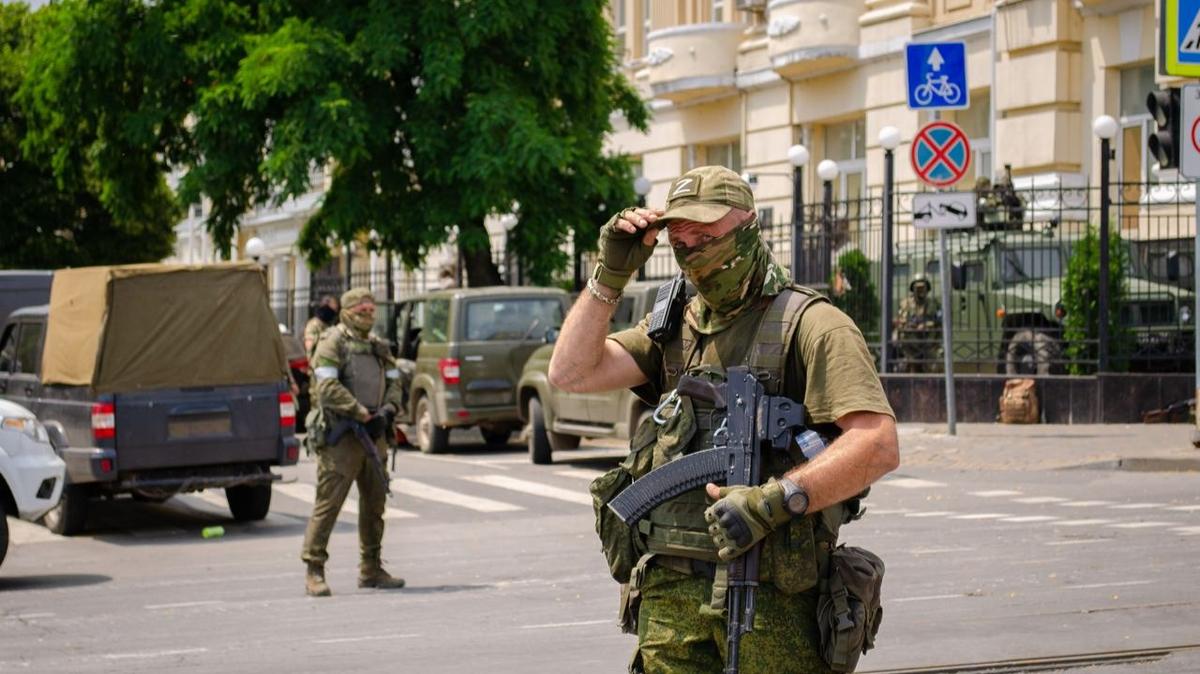Yevgeny Prigozhin’s mutiny represents a direct consequence of the mistakes made by Vladimir Putin on the eve of the full-scale invasion of Ukraine in 2022.
The Russian president plotted a quick and ruthless police campaign, as we know, and sent 200,000 Russian soldiers to capture the whole of Ukraine. The blitzkrieg’s failure forced the Defence Ministry to seek help from the Wagner Group, their previous partner in the Syria campaign and in Ukraine after 2014.
In the summer of 2022, the private military campaign became a crucial part of the invading force enjoying unprecedentedly broad powers: own command, autonomy, involvement in Prigozhin’s media networks, and, most importantly, the right to recruit convicts in Russian prisons, which goes against the law and common sense (that’s how the Kremlin was delaying its mobilisation decision). Over the course of the year that followed, the war did not get any heroes or main characters representing it — Prigozhin practically became the only avatar of the invasion of Ukraine, its main warlord.
His personal conflict with the Defence Ministry — indeed, an inefficient and corrupt institution that prevented Prigozhin from fighting like he wanted to — was intensifying. After the capture of Bakhmut, the Russian defence agency decided to end the mercenary group. Prigozhin suddenly faced a very real prospect of finding himself in the same cemetery as other “heroes of Donbas”, who could have potentially been killed by the very Wagner Group mercenaries in question.
Prigozhin places a bet on his own “political career” to stay one step ahead of the plans to eliminate him. He was giving increasingly aggressive interviews and plotting a rebellion for several months, hoping that a part of the Russian army and possibly other groups in the Russian elites would join him. The south of Russia turns into an occupied territory within hours, while Prigozhin’s convicts portray themselves as “little green men” (or “polite people” as they are referred to in Russia to describe the Russian military involved in the armed takeover of Crimea in 2014).
Any city clash would be won by the Wagner Group not just due to the fact that Russia simply does not have police forces or army units trained to neutralise a group of thousands of heavily-armed experienced fighters stationed inside Russia and around civilian targets, but also because Russian law enforcers are not jumping at the opportunity to die.
This is the most serious military and political crisis that Putin ever faced during his time in office and, possibly, the most severe political crisis in the country’s history since 1991.
It emerged suddenly and somewhat unexpectedly, out of the spirit of the criminal war that Putin chose to wage with the hands of murderers.
The most recent analogy in history? Benito Mussolini’s March on Rome (which was backed by the king of Italy, however). Putin’s system that existed before 23 June 2023 will be no more — Putin might stay in power (even that is not guaranteed), but his practices will be different, they will be even more based on paranoia and the direct rule of security services, the last saviours of the dilapidated dictatorship.
The Wagner Group will also cease to exist. The propaganda myth that all Russians united around the president in a struggle against the West has also completely collapsed. Both factors will deal a serious blow to the abilities of the Russian troops to fight and will grant Ukraine a chance to realise its military plans for the ongoing offensive.
Putin was warned that the country would not survive this war.
Join us in rebuilding Novaya Gazeta Europe
The Russian government has banned independent media. We were forced to leave our country in order to keep doing our job, telling our readers about what is going on Russia, Ukraine and Europe.
We will continue fighting against warfare and dictatorship. We believe that freedom of speech is the most efficient antidote against tyranny. Support us financially to help us fight for peace and freedom.
By clicking the Support button, you agree to the processing of your personal data.
To cancel a regular donation, please write to [email protected]

